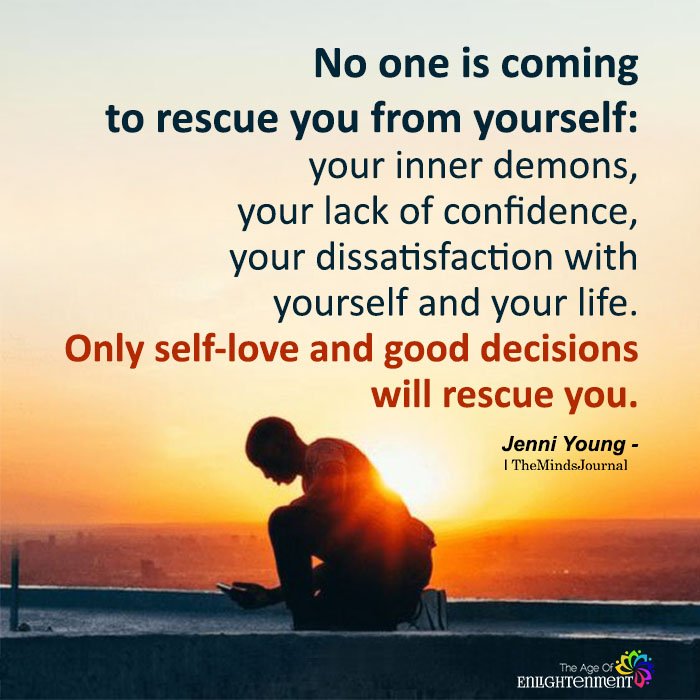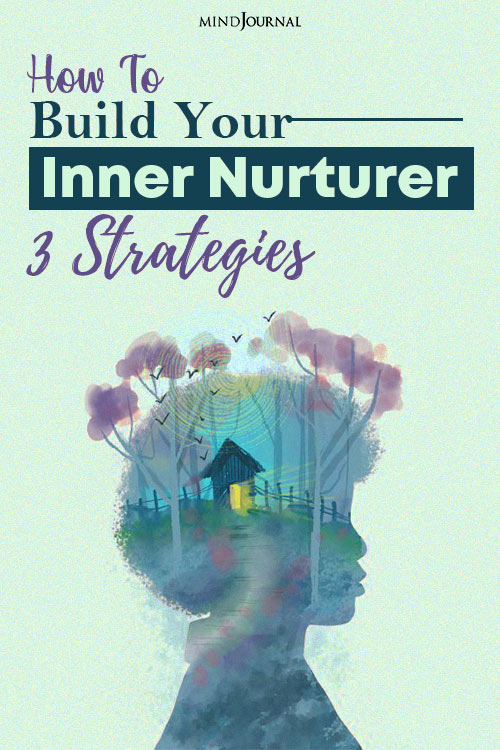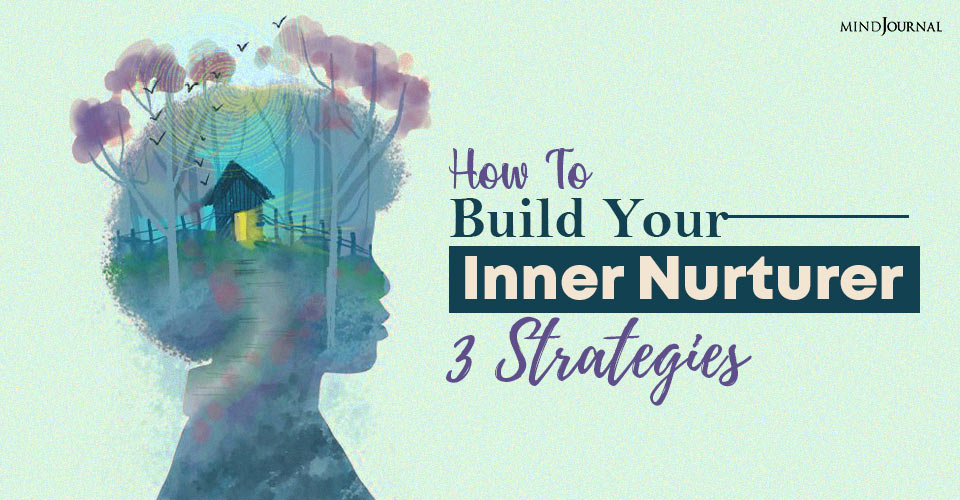Everyone need a supporting and encouraging inner voice, because self-criticism undermines confidence and restricts one’s talents. So, which one will you strengthen: your inner critic or your inner nurturer?
Three strategies for building your inner nurturer muscle.
Consider which of these is true for you: Do you have a loving, supportive, kind, and encouraging inner voice that follows you around throughout the day, like the voice of a compassionate coach? Or do you have a self-critical inner voice that says, “Something is wrong, something is missing… not good enough?”
This is a question I have asked scores of people during talks I have given, and what I have found time and again is that inevitably most people say they have a self-critical voice, and rarely does anyone say they have a self-compassionate voice that is part of their day-to-day inner dialogue.
Why Is This?
We tend to judge ourselves, criticize ourselves, blame ourselves, and feel deficient, in what Tara Brach refers to as the “trance of unworthiness.” This may have had some evolutionary value for our ancestors. Having a brain that focused on the negatives helped our ancestors survive harsh conditions. Having a brain that was constantly scanning our environment for threats and that was strongly invested in not having us mess up (because it could cost us our lives) made a lot of sense for our Stone Age ancestors.
But this harsh inner critic is still quite active in our modern lives, even in circumstances where it may not be needed or helpful. And for many people, this inner critic can drive the belief that “if I’m not hard on myself, I won’t meet my goals or accomplish what I want.”
The Two Coaches
Consider for a moment watching two high school soccer practices side-by-side. At one practice, student A is having a difficult time, and the coach yells: “What the heck is wrong with you? You look like you haven’t practiced in weeks. You are such a disappointment!” At the other practice, student B is having a difficult time, and the coach says: “Hey, it looks like you’re having a harder practice today. Are you feeling OK? Let’s see if we can work on that quick foot action that I’ve seen you do so well.”
Which coach do you think would be more motivating to their athletes? Which kid will walk away feeling good about themselves and be excited to show up for practice tomorrow? Which coach would you want for your child or for yourself?
Is That Inner Critic Really Helping You?
What I see time and again is that despite what people believe about needing to be hard on themselves to succeed, self criticism actually gets in the way of people moving toward their goals. When they slip up, there is such shame and blame that it shuts them down from wanting to move forward.
In fact, a fascinating study that explored the neural correlates of self criticism and self reassurance supports this idea. This study found that when people experience self-criticism, the parts of the brain associated with increased monitoring of errors, punishment, and behavioral inhibition are activated. In contrast, when people experience self-reassurance, the brain regions involved in expressing compassion and empathy toward others became active.
Related: How to Overcome Chronic Emotional and Psychological Sufferi
One way to interpret this is that people who tend to be self-critical are more tuned in to their errors, feel a strong sense of self-punishment, and have a higher tendency to shut down or inhibit themselves from taking steps forward—perhaps in an effort, as the authors of this study suggest, to “limit the social damage incurred by making the error.”
Despite many people thinking that being too easy on themselves will lead to them straying from their goals, extensive research shows that it is self-compassion, not self-criticism, that is the best motivator. But translating this into action is very unfamiliar to many people. How do I be kind and compassionate with myself? We are good at doing this for others, but it is often much harder to do this for ourselves.

Building The Inner Nurturer Muscle
Rather than having this remain an abstract concept, here are a few concrete ways to begin to cultivate this quality in yourself, to become a more supportive inner coach for yourself.
1. Instead of leaving it to chance, be intentional about being kind to yourself.
At the beginning of your day, write out one to three ways that you will be kind to yourself today. Make sure you pick things that are small, realistic, and that you can follow through with (and if by chance you don’t follow through, be kind to yourself and try again tomorrow!). Make sure to use language like, “Today I am going to be kind to myself by…” because that emphasizes to yourself that this is an intentional act of kindness. For example:
“Today, I am going to be kind to myself by going for a 10-minute walk to de-stress during my work break. I’m going to listen to some favorite music and thank myself for taking this time for self-care.”
“Today, I’m going to be kind to myself by making myself a healthy lunch. Then, while eating, I’m going to pay attention to the way that this food feels nourishing for me.”
Don’t just go through the motions of the activity. Make sure to take a few moments to let this register as an act of self-kindness and self-care.
2. Write about a time that you had a setback or difficulty but got through it.
Write in the second person, as if your current self were speaking to your past self. Name some of your strengths or what helped you through this difficult moment. Be kind to yourself for whatever suffering this situation caused you.
If this feels challenging, imagine what words you would use if you were writing to a good friend or a child who went through something similar. For example, “Dear Self, I know that time when you froze at that work meeting was so embarrassing for you, but you had the courage to stick it out, recover, and keep going. I’m sorry you experienced that, and I know it was painful at the time, but you handled yourself very professionally nonetheless, and you got right back up there at the next meeting. I’m proud of your perseverance.”
3. Make it a point to breathe.
As you go through your day today, whenever you experience a difficult emotion or feel stressed or challenged in some way, pause, put your hand on your heart (if you are in a place where you are comfortable to do that), and take three slow breaths. On the first breath, name what you are feeling (e.g., I am so disappointed). On the second breath, say to yourself, “it’s OK that I am feeling this—this is a difficult moment.” On the third breath, say, “I wish for myself that I not suffer,” or “I wish for myself peace,” or whatever words of kindness feel best for you.
Related:12 Tips To Self-Love And Compassion
A Final Word
We need not get “rid of” the inner critic (nor may we be able to), but we can thank it for trying to protect us and remind ourselves that we have more newly evolved parts of our nervous system (our “tend and befriend” social engagement system) that can actually handle the situation even better. As we take steps to strengthen the inner nurturer, over time, this voice becomes louder, and the one we begin to listen to and trust that we can turn to when the going gets rough.
What other activities do you engage in to silence your inner critic and nurture your inner-self?
Written by: Beth Kurland, Ph.D.
Originally appeared on: Psychology Today
Republished with permission









Leave a Reply
You must be logged in to post a comment.